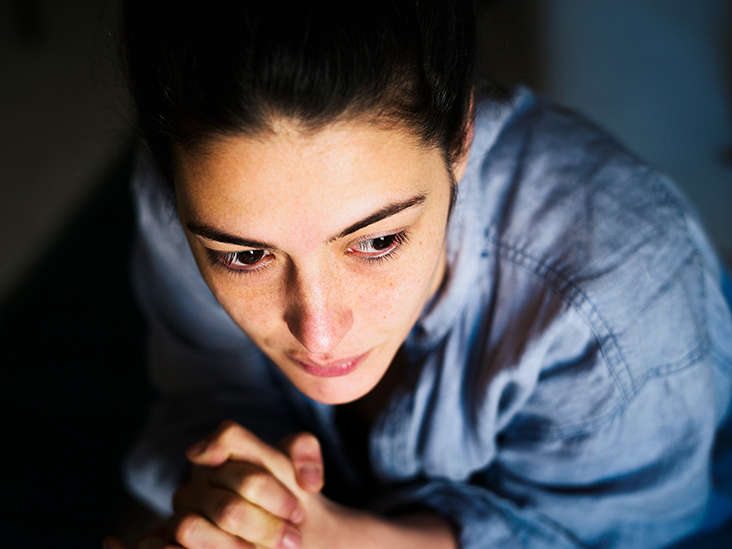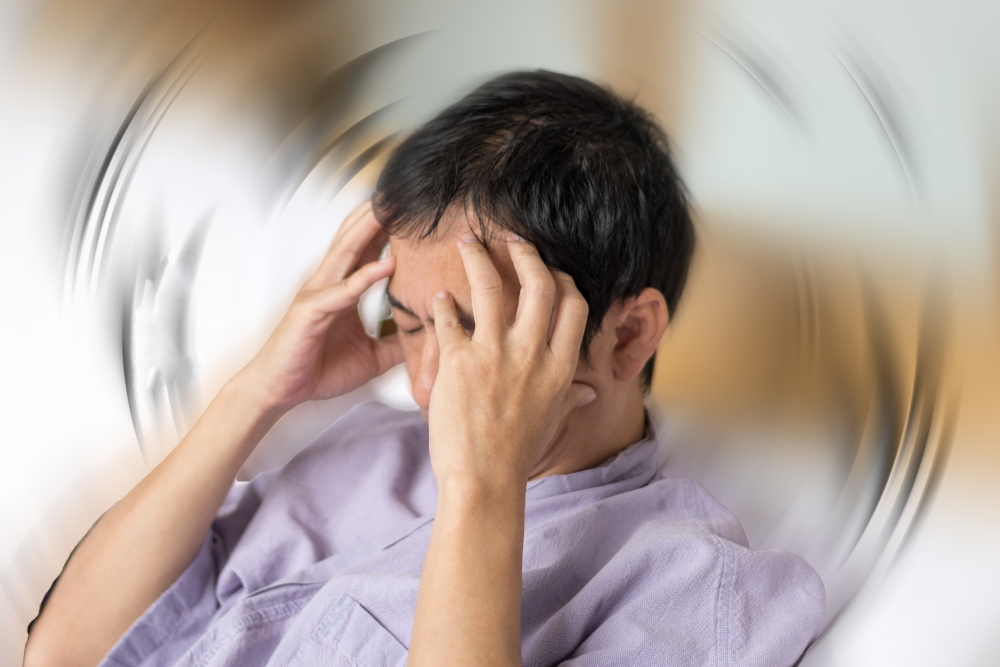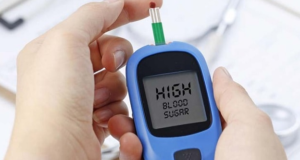Do you experience anxiety and at times feel dizzy or as if you’re about pass out? Do you wonder can anxiety make you pass out? Do you want to know how is anxiety and fainting related? Well, you’ve reached the best place to find your answers.
Anxiety is not just a feeling or emotion as it can affect your whole body. There are many physical symptoms that are associated with anxiety.
Anxiety can interfere with your daily routine and make you feel as though you’re going to faint or pass out. Read on to understand why does this happens and how to cope with your anxiety and chronic stress.
Also Check: Can Anxiety Make You Pass Out?
Can anxiety make you pass out?
Yes, anxiety can make you pass out. Losing consciousness is a scary and potentially dangerous sign. It is one of the greatest fear of people. It could indicate many life-threatening conditions or disorders. Strangely, it is one of the common symptoms of anxiety disorder.
During intense anxiety or frequent panic attacks, people feel as if they are going to lose consciousness. This causes more panic because when you’re unconscious, you’re can no longer control yourself.
Let’s discuss why or how can anxiety make you pass out. There several ways anxiety can cause light-headedness, dizziness, or fainting.
Vasovagal Syncope- When the blood pressure suddenly drops, it decreases the blood flow to the brain. This causes a person to feel dizzy or even pass out. People with severe anxiety often report passing out to certain triggers or stressors such as needle phobia etc.
Hyperventilation- People experiencing anxiety often hyperventilate when they have a panic attack or are worried. This excessive abnormal breathing increases the binding of oxygen to hemoglobin. This in turn reduces the oxygen availability to the tissues, including brain cells. This can cause a person to faint.
Just because you have anxiety do not you’re going to pass out. It varies from person to person and depends on the severity of the situation.
There is a common fear among the people suffering from anxiety known as fear of passing out or fear of fainting. This fear can worsen the symptoms and cause extreme panic.
Also Check: Can Anxiety Cause Muscle Weakness?
Does anxiety make you lose weight?

Can anxiety make you like weight? Yes, it can. It can have a direct impact on a person’s weight and body mass. Either people lose weight or some even gain some pounds. It depends on how a person takes the stress.
Stress may lead to loss of appetite which can eventually lead to missed meals. It feels as if your hunger has died. You don’t feel the desire to eat anything, even if your favorite food is in front of you. This might be temporary and you may feel normal once the stressor has passed.
If this goes on for too long, you may lose a considerable amount of weight in a short period of time which can be an alarming situation. If you’ve lost more than 5% of your weight in a short time period, you should see your doctor.
You can talk to your therapist, or work with a nutritionist to develop a proper diet plan. It might take you time to regain your weight.
Without treatment, a large amount of weight loss can lose serious risk to a person’s health.
Also Check: Why Is My Anxiety Worse In The Morning?
Can anxiety make your chest hurt?
Yes, anxiety can cause chest tightness and discomfort. Anxiety not only messes with your mind but also with your body. Although chest pain can be caused by several health problems and anxiety is one of them. It is one of the most common non-cardiac problems that cause a person’s chest pain and discomfort.
Chest pain associated with anxiety can vary from person to person. Some have mild gradual pain, while for others it is sudden and unexpected.
Anxiety-associated chest pain is usually a sharp, shooting/stabbing pain that leads to persistent chest aching. It might also present as burning, numbness, or a dull ache. Chest tightness or tension is a very common symptom of anxiety.
Let’s discuss why does your chest hurts when you have an anxiety attack. When you become anxious, your whole body undergoes a response to stress alongside hormonal release from the brain.
Usually, this response called the fight-or-flight response should last about 30 minutes. If your body does not recover in this time due to frequent attacks, this can cause increased muscle tension and intense muscle contractions. This will become result in painful chest tightness.
Increased heartbeats, palpitations due to stress combined with tight chest muscles can cause unusual chest pain while your anxious or stressed.
Also Check: Long Term Benzodiazepine Use for Anxiety
Can Zoloft make anxiety worse?
Zoloft (generic name: Sertraline) is an antidepressant. It belongs to the Selective Serotonin Reuptake Inhibitors (SSRI) class. It is used widely to treat depression and various types of anxiety disorders.
However, it has been reported that Zoloft and other SSRIs can have mysterious side effects. These drugs can worsen anxiety in the initial weeks of use. This is called antidepressant-induced anxiety/ jitteriness syndrome. This can make the patient stop their treatment.
A study conducted in 2014 revealed that 7% of the participants who’ve been using SSRIs for one month developed antidepressant-induced anxiety syndrome. It is also known as activation syndrome or jitteriness syndrome.
Also Check: Dog Separation Anxiety Medication Over the Counter
Does anxiety make you tired and weak?

Yes! Anxiety can literally drain the energy and strength out of you, making you weak and tired. But why does this happen? Well, we know anxiety causes a hormonal rush. This sudden increase in stress hormones can leave you feeling exhausted and tired.
This exhaustion and weakness can last for a long time, even when the hormonal balance is maintained. Usually, chronic stress and tiredness go hand and hand.
You may feel tired and fatigued even after you’ve gotten some rest. It can also interfere with sleep causing insomnia.
Also Check: What Kind Of Doctor Should I See For Anxiety?
Can anxiety make you nauseous?
If you are extremely stressed or anxious, you might feel nauseous or sick. Nausea is a very commonly reported symptom of anxiety disorder. It’s probably one you might have even experienced yourself.
Nausea is not a potentially dangerous symptom of anxiety, but it can interrupt the failure flow of life. Not everyone experiences anxiety nausea, but it is relatively one of the most common symptoms of anxiety.
But why do we feel nauseous when we are anxious or stressed? When a person is anxious, the brain releases stress hormones and neurotransmitters to put the body in a high alert state. This response is known as a fight-or-flight response.
These stress hormones such as cortisol or adrenaline cause our body muscles to be tensed and make us feel sick in the stomach. You might even feel like puking or dry heaving. It might feel like butterflies in your stomach.
The chemicals released during an anxiety attack can also upset the gut microbiome i.e. the natural flora of microorganisms living inside the gastrointestinal tract. Imbalance in the natural flora of the gut can make a person nauseous.
Also Check: Depression and anxiety disability benefits
Can anxiety make you throw up?
An anxiety attack can be very distressing and disturbing as it can make you throw up. For some people, anxiety can manifest as nausea and vomiting. As we discussed above, there is a connection between the brain and the gut.
Panic anxiety can indirectly cause stomach upset. Whenever we go through emotional distress, we feel as if there is a knot in our stomach.
Anxiety can often cause an imbalance in your gut and is reflected somehow in the form of gut issues. Chronic stress can make you feel nauseous or even make you vomit.
Also Check: How to get a job with social anxiety
How to make anxiety go away?

Anxiety or chronic stress can affect a person’s ability to do his daily work. It can affect the quality of his life. Recovery from anxiety is possible but takes time as there is no quick fix for it.
Following are a few strategies and hacks that might help you treat and manage your anxiety and its associated symptoms. Always remember, the key is persistence and patience.
Understanding Anxiety- this is very crucial in your endeavor to manage anxiety. You need to understand what is causing these symptoms as this will help in treating them.
Deep Breathing- Breathing slow and deep can help in calming down. It’s nothing complicated, just focus on deep inhaling and exhaling slowly and evenly. This will help in de-stress your mind and body.
Be the boss of your thoughts- You need to take control of your thoughts. Your mind might throw negative feelings and thoughts towards you but you should try to turn them into positive ones.
Follow the 3-3-3 rule- There’s a trick to draw away your mind by naming any three things you see around you. Then, name any three colors around you or any three sounds you hear. Keep doing this to trick your mind to bring it back from racing thoughts to the present.
Have a healthy lifestyle – Try to maintain a healthy lifestyle by eating healthy, doing physical exercises, and having a healthy routine. Exercise is important for not inky physical health but also mental health.
It can ease your stress and anxiety. Start with gentle exercises or yoga. You can always go for a simple jog or walk in any nearby park. It is essential for your health as well as your well-being.
Eat Healthy and Avoid alcohol/ caffeine – Having a well-balanced diet rich in essential nutrients is very important to keep you healthy and active. Reduce the intake of caffeine as it is a known stress inducer. Limit alcohol intake and caffeinated drinks.
Focus on your sleep- You should pay attention to your sleep and make sure you get quality sleep. As it is recommended to have 8-hour sleep per day, but anxiety can make it difficult to sleep. Make a proper routine to help you have a proper sleep cycle.
Distract your mind- Just do anything to distract your mind. Stand up, look around, write something, draw or paint, just do anything! Distracting your mind from the negative and worrying thoughts can calm you down.
Talk to someone who understands- You don’t have to feel alone when you can share your feelings with someone who gets it. It could either be a professional therapist or your friends and family.
If there’s someone who has an anxiety disorder, he/ she can understand and relate to you. You both can help each other out in times of distress. You can vent out your thoughts with them without being judged. They might have a way to help you.
Seek professional help- If you feel you can’t keep your anxiety under control, you should get professional help. Go to your doctor or therapist to get counseling or anti-anxiety medications.
Your doctor may prescribe you anti-anxiety medications such as benzodiazepines. They can help in decreasing your anxiety and stress. Always follow your doctor’s advice before taking them.
Your health provider might also suggest you counseling or psychotherapy to help you deal with your emotional distress. One type of psychotherapy is Cognitive Behavioral Therapy (CBT) is a very commonly used technique for anxiety.
All these strategies might not always work for you but don’t ever lose hope. You’re not alone in your struggle. The first step towards management is the hardest. Stay consistent and it will surely get easy for you!
Also Check: Can I Get Disability For Depression And Anxiety?
Takeaway
Anxiety can have a strong impact on both your mind and body, ruining the quality of life. This article, “Can anxiety make you pass out?” aims to make you understand your anxiety and have awareness of how to deal with it.
Anxiety can present in various ways and different symptoms. Pay attention to these symptoms and seek immediate professional help if it’s getting out of your hand.
Always remember controlling anxiety can take some time and needs your patience and determination. Make anxiety your strength, not your weakness!
Also Check: Generalized anxiety disorder weight loss



